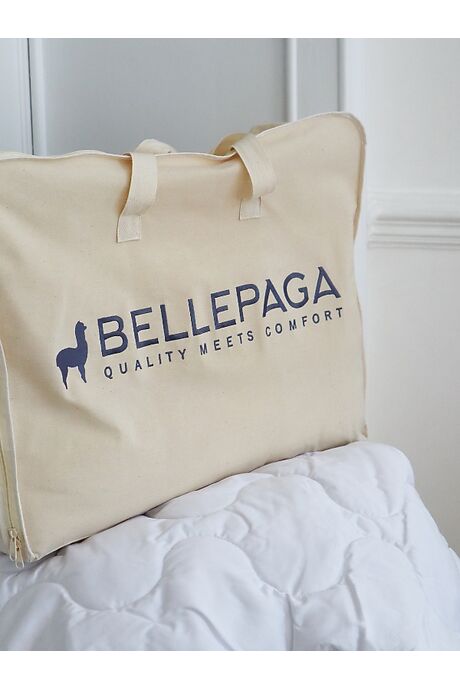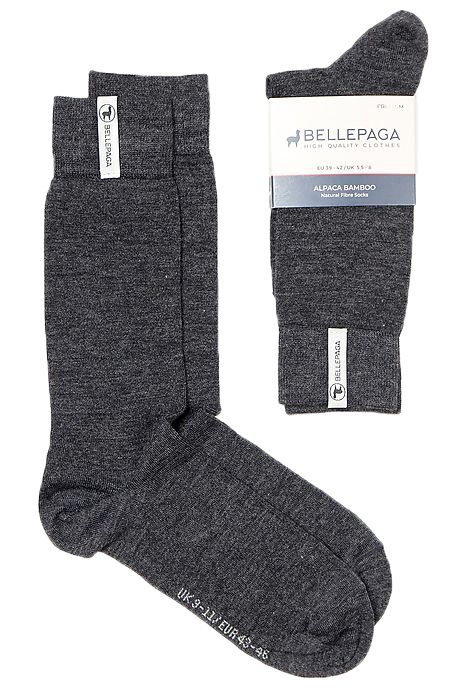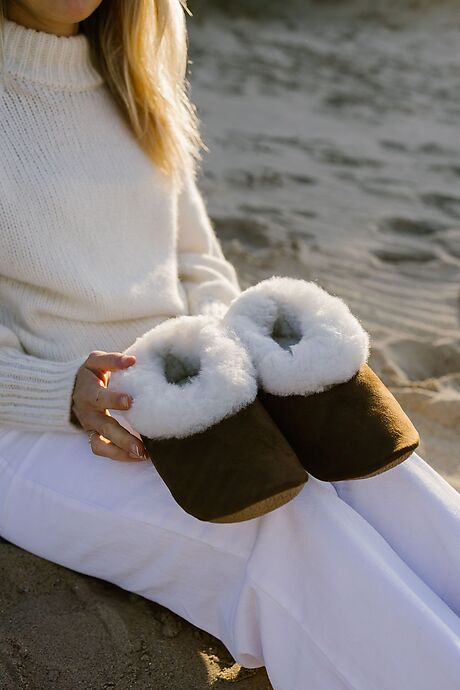Cold feet stress
Cold feet are an unpleasant sensation that affects many people, often for no apparent reason. One of the most common, yet little-known causes is stress. Stress-induced cold feet occur when anxiety and daily stresses have a direct impact on the temperature of your feet. This problem can turn a simple discomfort into a source of discomfort, affecting your general well-being.
The link between stress and cold feet is rooted in our physiological response to stressful situations. When we're faced with stress, our bodies go into "fight or flight" mode, releasing hormones such as adrenaline. This response causes blood vessels in the extremities, including the feet, to constrict, redirecting blood flow to muscles and vital organs. While this response is useful in the event of immediate danger, it becomes problematic when triggered frequently by daily stress, leading to recurrent cold feet.
In addition to the physiological response, chronic stress can aggravate medical conditions such as Raynaud's disease, where blood vessels contract excessively. Anxiety can also cause hyperventilation, reducing blood flow to the feet.
Causes of stress-related cold feet

Cold feet can be a puzzling symptom, especially when linked to stress. Understanding the specific causes of stress-related cold feet is essential to adopting the right management strategies. Stress affects the body in a variety of ways, and cold feet are a case in point.
The body's response to stress is primarily managed by the autonomic nervous system, in particular the sympathetic branch, which triggers the "fight or flight" response. This response is designed to protect the body in the event of immediate danger. When a person is stressed, the body releases hormones such as adrenaline, which increase the heart rate and constrict blood vessels. Vasoconstriction of the blood vessels in the extremities, including the feet, reduces blood flow to concentrate energy and blood to the muscles and vital organs needed for a rapid response.
This reduction in blood flow to the feet is a direct cause of cold feet stress. When this response is prolonged or repeated, due to chronic stress, it can lead to a persistent sensation of cold feet. In addition, people suffering from chronic stress may also be more likely to develop disorders such as Raynaud's phenomenon, where blood vessels contract excessively in response to cold or stress, exacerbating the sensation of cold feet.
Another factor to consider is anxiety-induced hyperventilation. When stressed people breathe rapidly and shallowly, this can lead to lower levels of carbon dioxide in the blood, which in turn causes blood vessels to constrict. This constriction further reduces blood flow to the feet, aggravating the sensation of cold.
Stress also has an impact on the hormonal system. Cortisol, the stress hormone, can disrupt metabolism and blood circulation, contributing to problems regulating body temperature. Stress-induced hormonal imbalances can make it difficult for the body to maintain a stable temperature in the extremities.
In summary, stress coldfoot is primarily the result of the body's physiological response to stress, including vasoconstriction, hyperventilation and hormonal imbalances. Understanding these mechanisms enables us to gain a better understanding of the problem and seek appropriate solutions to alleviate this discomfort. In the following sections, we'll explore strategies for alleviating stress-related cold feet, including the importance of appropriate socks, such as those made from alpaca wool.
Solutions to warm your feet

Cold, stress-related feet can be uncomfortable, but fortunately there are several solutions to warm them up and improve circulation. Adopting targeted strategies can not only help relieve stress-related cold feet, but also improve overall well-being.
Stress management: The first step in combating cold feet is to manage the stress itself. Relaxation techniques such as meditation, yoga and deep breathing can help reduce stress. By lowering stress levels, you can prevent the excessive vasoconstriction response that reduces blood flow to the feet. Practising these techniques regularly can have a significant effect on the temperature of your feet.
Regular exercise: Physical activity stimulates blood circulation and can help warm feet. Exercises such as walking, jogging or even gentle stretching can improve blood flow. In particular, exercises that target the feet and legs, such as ankle rotations and calf stretches, can be beneficial. Exercise also helps to reduce stress, offering a beneficial double action.
Wearing Alpaca Wool Socks: Alpaca wool socks are particularly effective at keeping feet warm. Alpaca is a natural fiber that offers exceptional thermal insulation. Unlike ordinary wool, it is hypoallergenic and softer, making it ideal for people with sensitive skin. Wearing alpaca wool socks can help maintain a comfortable temperature and prevent cold foot stress by ensuring your feet stay well insulated from the cold.
Warm footbaths: Taking warm footbaths can quickly warm up your feet. Adding Epsom salts or essential oils such as lavender can also help relax and improve circulation. Soaking your feet in warm water for 15 to 20 minutes before drying them off and putting on warm socks can be very effective.
Hydration and diet: Drinking enough water is crucial to maintaining good blood circulation. A diet rich in vitamins and minerals, particularly iron and magnesium, can also support circulatory health. Foods such as citrus fruits, berries, spinach and nuts can contribute to better circulation.
Foot massage: Massaging your feet can stimulate circulation and warm the feet. Using a warming lotion or massage oil can improve the effectiveness of the massage. Concentrate on circular movements and gentle pressure on tense areas.
Alpaca: a natural and effective solution

When it comes to remedying the problem of cold feet caused by stress, natural solutions are often the most beneficial and long-lasting. Among them, the use of natural fibers like alpaca stands out for its effectiveness and numerous benefits. Incorporating alpaca wool products into your wardrobe can provide exceptional thermal comfort, especially for those suffering from cold foot stress.
Superior thermal insulation: Alpaca wool is known for its exceptional insulating properties. Compared to traditional sheep's wool, it has hollow fibers that trap body heat more effectively. This means that alpaca wool socks can keep your feet warm even in extremely cold conditions. For those suffering from cold foot stress, this ability to retain heat is crucial as stress can cause vasoconstriction, reducing blood flow to the extremities.
Softness and comfort: Unlike some wools that can be irritating, alpaca wool is extremely soft and comfortable to wear. It is hypoallergenic, making it ideal for people with sensitive skin. This extra softness and comfort is particularly appreciated when stress exacerbates sensitive, cold feet. Alpaca wool socks thus offer not only an effective but also a pleasant solution to cold feet stress.
Breathability and moisture management: Another quality of alpaca wool is its ability to breathe and wick away moisture. When you're stressed, you can sweat more, including on your feet. Alpaca socks absorb moisture while allowing your feet to breathe, preventing them from becoming clammy and uncomfortable. This efficient moisture management helps maintain a stable, comfortable temperature, reducing the feeling of cold.
Durability and care: Alpaca wool products are renowned for their durability. They are more resistant to warping and pilling than other types of wool, which means they retain their thermal properties and appearance for a long time. Investing in alpaca wool socks is therefore a sustainable solution for those who suffer from cold foot stress, ensuring that your feet stay warm and comfortable over the long term.
Styling and versatility: Finally, alpaca wool socks are available in a variety of styles and colors, making them an easy addition to any wardrobe. Whether for everyday use or for specific activities such as winter hiking, these socks offer both functionality and aesthetic appeal.
Conclusion
In short, cold foot stress is a common problem that can greatly affect daily comfort and quality of life. Solutions to alleviate this discomfort include strategies to better manage stress, exercises to improve blood circulation, and the choice of suitable clothing. Among the latter, alpaca wool socks are particularly effective. Thanks to their insulating properties, softness and optimal moisture management, they offer superior thermal comfort, ideal for those suffering from cold foot stress. Investing in alpaca socks can not only keep your feet warm, but also add a touch of luxury and durability to your wardrobe. By incorporating these solutions, you can not only improve the comfort of your feet, but also mitigate the impact of stress on your daily life.
-
Ñawi duvet 450gr/m2 140x200cm
459,00 €
-
Sami Premium Socks - Classic
- 35 - 38
- 39 - 42
- 43 - 46
29,90 €
-
La Paz Slippers
- 35
- 36
- 37
- 38
- 39
- 40
- 41
- 42
- 43
- 44
- 45
- 34
- 46
- 47
69,00 €







